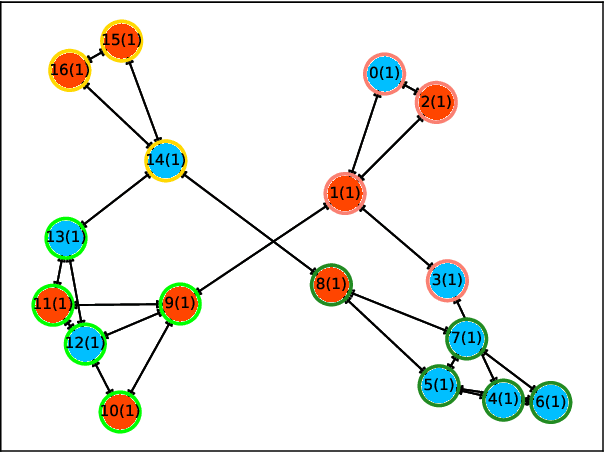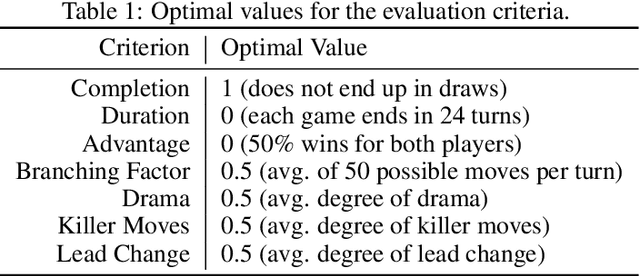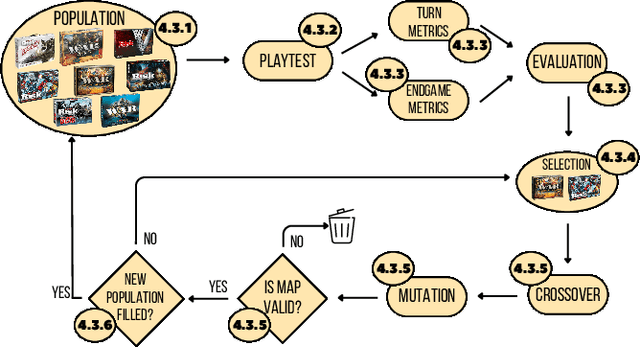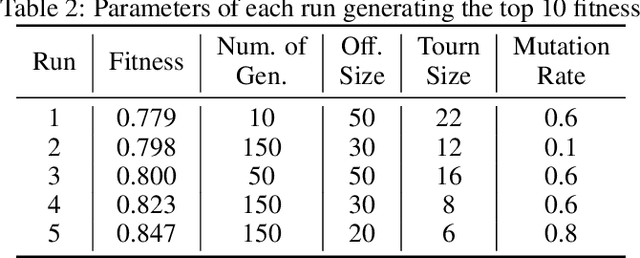Evolutionary Tabletop Game Design: A Case Study in the Risk Game
Paper and Code
Oct 30, 2023



Creating and evaluating games manually is an arduous and laborious task. Procedural content generation can aid by creating game artifacts, but usually not an entire game. Evolutionary game design, which combines evolutionary algorithms with automated playtesting, has been used to create novel board games with simple equipment; however, the original approach does not include complex tabletop games with dice, cards, and maps. This work proposes an extension of the approach for tabletop games, evaluating the process by generating variants of Risk, a military strategy game where players must conquer map territories to win. We achieved this using a genetic algorithm to evolve the chosen parameters, as well as a rules-based agent to test the games and a variety of quality criteria to evaluate the new variations generated. Our results show the creation of new variations of the original game with smaller maps, resulting in shorter matches. Also, the variants produce more balanced matches, maintaining the usual drama. We also identified limitations in the process, where, in many cases, where the objective function was correctly pursued, but the generated games were nearly trivial. This work paves the way towards promising research regarding the use of evolutionary game design beyond classic board games.
 Add to Chrome
Add to Chrome Add to Firefox
Add to Firefox Add to Edge
Add to Edge